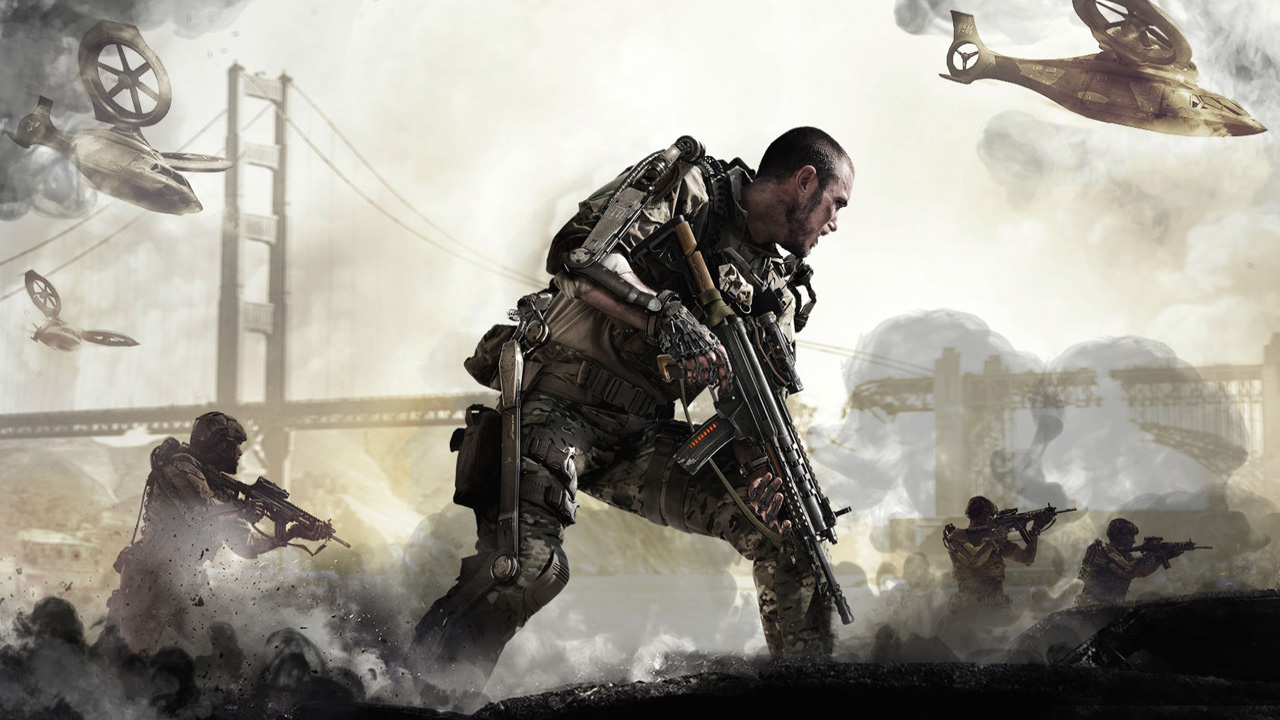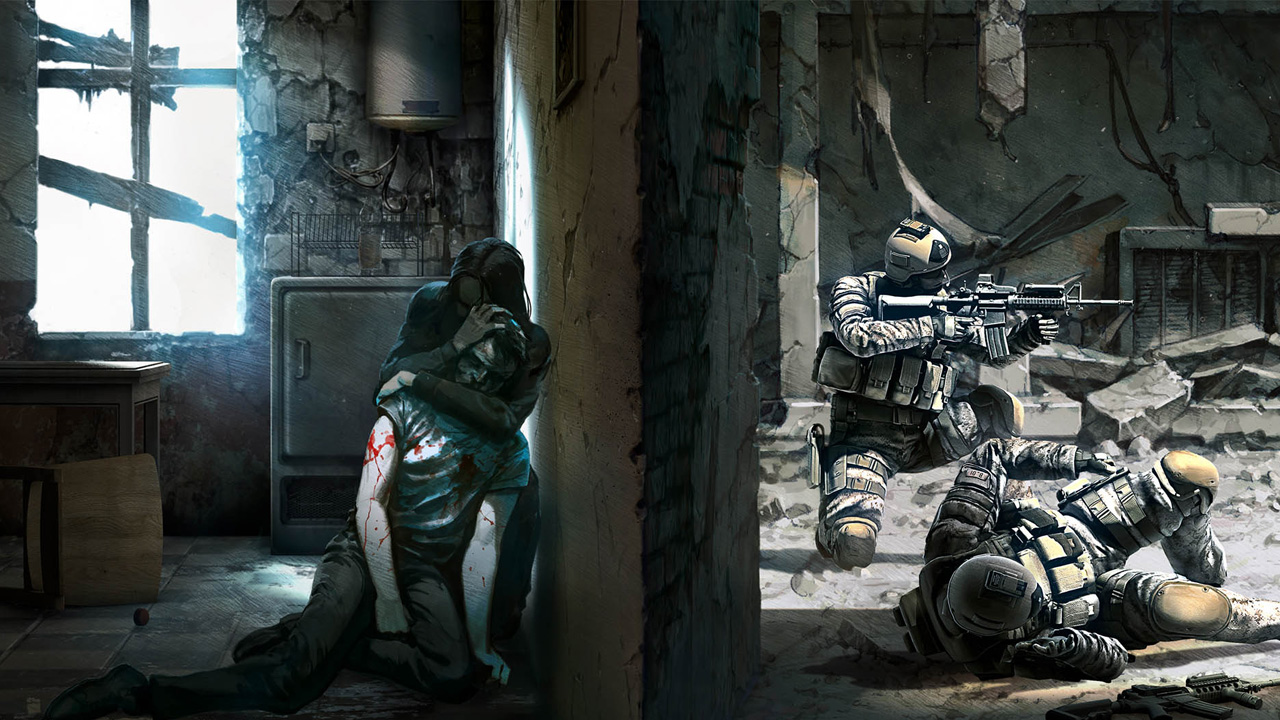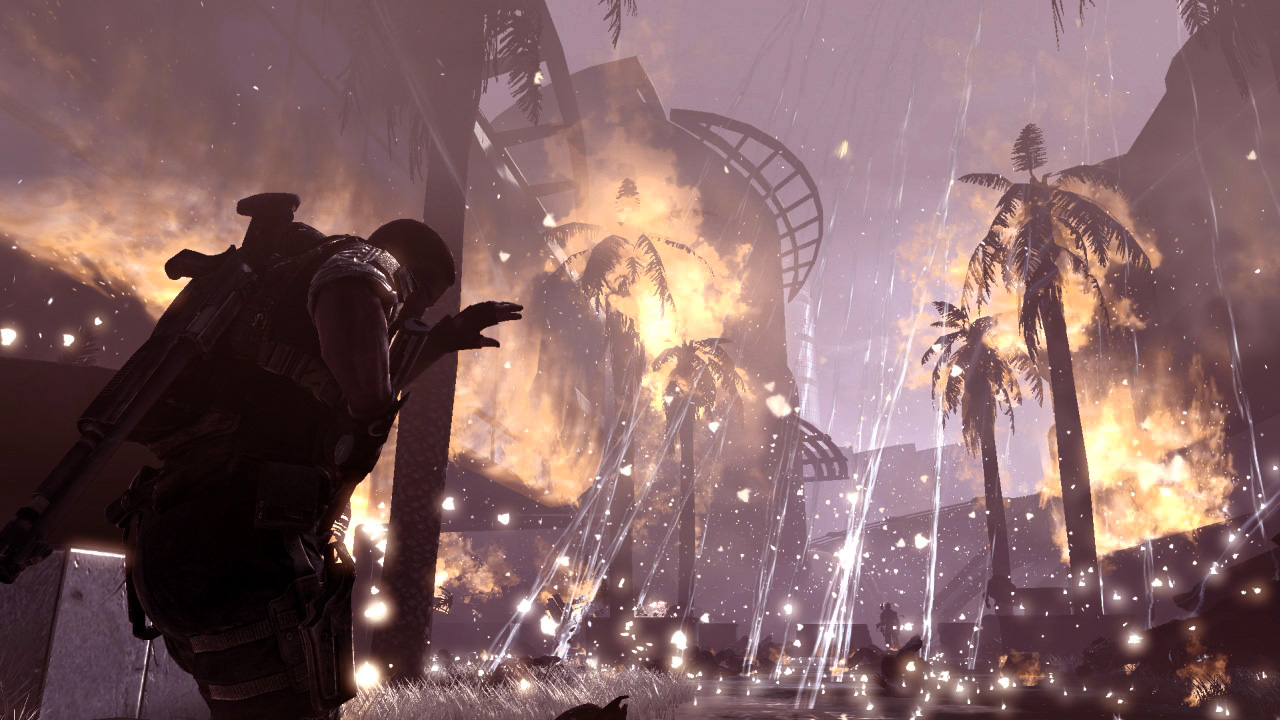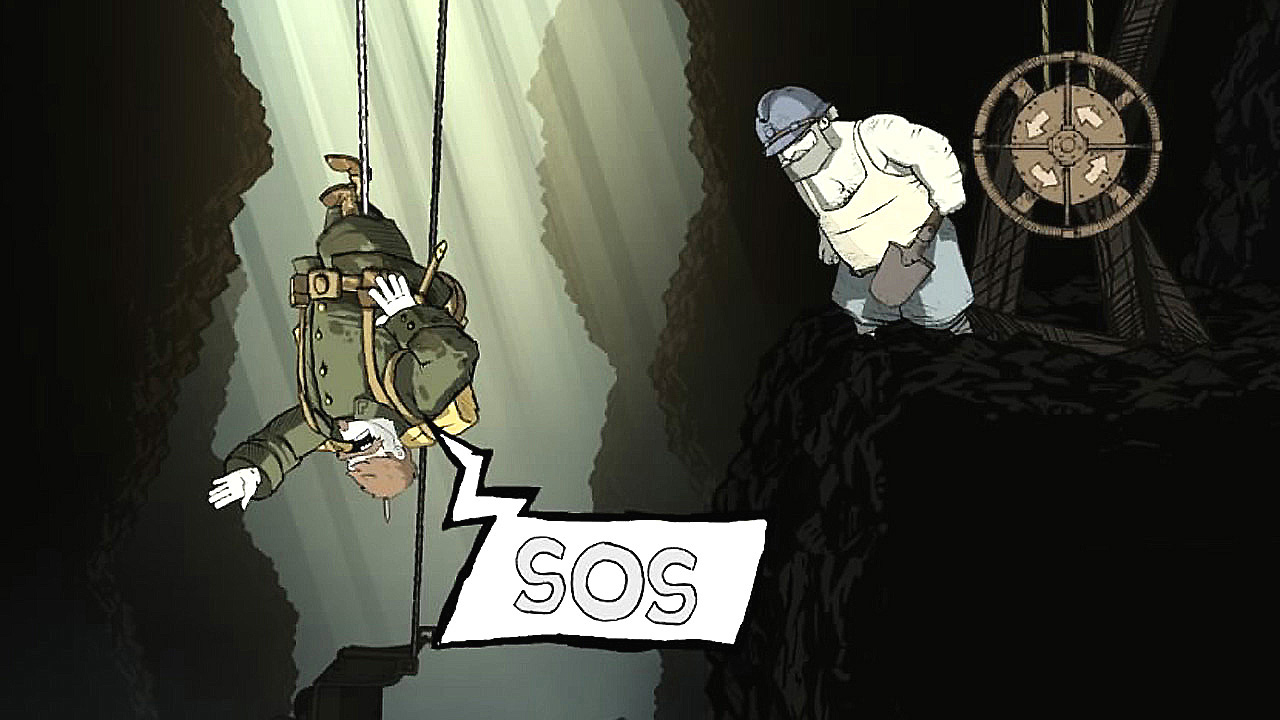INTERTAIN is an event group based in Sydney, Australia where people gather to play games, engage in thematic discussions, and examine Bible verses and other related sources. As seen below, the sessions are documented (from my point of view) to give readers an idea of what goes on during these sessions. In this particular case, we looked into the topic of “WAR”.
—————————————————
Video games set against the backdrop of war have always permeated the medium. It is hardly surprising, considering the common industry practice of formulating systems of play out of action mechanics and strategic trials. As a result, gamers are accustomed to associating portrayals of war with fun and excitement.
We needn’t search further than the Call of Duty franchise to see a perfect example of this enduring trend. Its annual releases stand as iconic demonstrations of how to shape physical conflicts into entertaining blockbusters. As of date, 175 million copies of Call of Duty games have been sold — irrefutable proof that many enjoy what the series has to offer.

Over the decade, however, these interactive affairs perpetuated certain clichés. A cursory glance at the typical protagonists of the genre would suffice in uncovering the following qualities:
- The player is empowered in times of war.
- The player becomes a savior to the needy.
- The player solves problems with a gun.
In recent years, some developers have tackled the theme from more realistic perspectives, aiming to challenge and subvert established conventions. For the purpose of our Intertain meeting, we played and discussed three works of this sort.
THIS WAR OF MINE
Key Question: As a civilian, would you be prepared for war?
People often look to video games in order to satiate power fantasies. This War of Mine provides no such pleasure. Inspired by the Siege of Sarajevo, the survival simulation stresses vulnerability over strength by humbling players into the shoes of common civilians in a warzone.
As a group, we speculated on how we would fare under similar circumstances. Probably not too well, given that the majority of us don’t have supplies stocked in preparation for a national crisis. Nevertheless, we agreed that no one should steal nor employ any form of violence to stay alive. The girls, in particular, would rather die than commit crimes against fellow humans. Others, like Morgan, worried about setting a good example for children. Whatever the motive may be, we hoped to guide the in-game survivors along a gentle path that reflected our spirit.
Into the simulation: our little Bosnians started off exploring their safe house for basic materials. From what they were able to salvage, they built some furniture and a workshop bench. Food was scarce, so we paced out the meals. In the evenings, we would send one of them out to scavenge from nearby sites. At one of these outings, discussions arose on what to take and what to leave behind. Our group took quite a while to fine tune the perfect balance of food, wood, and medicine that occupied limited bag space. Yet all that effort seemed futile upon returning to discover that the shelter had been raided. And we left it there, amid a sad turn of events.

Just because we sought peaceful methods, it didn’t exempt us from the effects of violence. The realism of This War of Mine attests to the desperation of survival during war. Perhaps we should fight in self-defense? Perhaps we should steal from robbers? Perhaps we could simply save everyone the trouble and take the initiative to kill off those who would destroy and pillage? The game raised many questions and tested our convictions.
At least there was still one issue that we were sure of: children mustn’t become food!
The morbid account of the Siege of Samaria in 2 Kings 6 rendered us speechless. The city suffered a great famine, its citizens determined to do anything to live another day. As it is written, a mother filed a complaint to the Israelite king concerning an arrangement that she made with another woman. Verses 28 and 29 tell it straight:
This woman said to me, “Give up your son so we may eat him today, and tomorrow we’ll eat my son.” So we cooked my son and ate him. The next day I said to her, “Give up your son so we may eat him,” but she had hidden him.
To end the segment on a more positive note, May (Editor’s note: the author’s wife) advised a few practical tips on how we might prepare for extraordinary situations. The recommendations included stocking up, learning useful skills, sharing resources, and offering help to potential aggressors. Hopefully these steps would steer us away from the temptation of feeding on little ones…
SPEC OPS: THE LINE
Key Question: As a soldier, would you maintain your sanity?
Military missions in gaming, traditionally, communicate clarity and assurance the player: “You are fighting for a noble cause. The enemies that you face are evil fanatics. So feel free to go nuts and save the day!” If only this simplicity holds up in real-world battles. We decided to throw Kai in at the deep end with Spec Ops: The Line to accentuate the game’s skeptical view of war as a complex, chaotic entity, full of moral ambiguity.
Captain Walker and his men deploy in Dubai for a search and rescue mission regarding the 33rd Infantry Battalion after the whole city was hit by a devastating sandstorm. Confusions arose when they discovered that the 33rd fight with insurgent groups under the influence of CIA operatives. Meanwhile, failed evacuations send local civilians into a panic, and some have also been driven to fierce retaliation against whoever may appear responsible for the general disarray.
Matters were precarious, but that didn’t stop Kai from following his masculine instincts and going guns blazing into the first scene — a hostage situation, no less! What was a trained solider to do with rifle in hand, anyway? However, the audacity costed the lives of civilians, and being disoriented amid the heat of battle, Kai also fired upon those alongside his command. He grinned after a few unsuccessful attempts and relinquished control for someone else to have a go.
Having had more experience with shooters, Morgan took the reins and proceeded via a stealthier approach. He managed to free several of the captives before dispatching the enemies. Soon after, his squad arrived at a large courtyard heavily guarded by opposition. There was only one way forward: equip a formidable weapon and wipe out the entire area. By design, they spotted a mortar loaded with white phosphorus rounds. Dangerous, but perfect for the occasion!
Morgan booted up the console attached to the mortar. It allowed him to track and eradicate hostile targets through thermal imaging, while a subordinate provided relevant tips: “Take out the snipers on your left! Lots of soldiers behind the hummers! Reinforcements entering from the north!” One by one, animated blips on the screen stilled as incendiary chemicals rained from the sky.

In other games, this overwhelming triumph may have been a high-five moment. But in this case, we were forced to confront the aftermath. “This was too much,” said the staff sergeant who assisted with the firebombing. He was probably right. No longer distanced by an abstract digital display, we witnessed first-hand the stark horrors of melted faces and dissolved bodies scattered around the courtyard. Furthermore, when the fumes settled, we ascertained that among the victims of the attack was actually a group of civilians due to be evacuated by the “enemy” militants. Captain Walker’s men started going off at each other in fury and disbelief, but their commanding officer stayed shockingly cold and concluded: “I’m gonna make those bastards pay for what they’ve done.”
Wait, come again?
To make sense of why Walker seemed intent on shifting the blame of the atrocities that were initiated by his order, Robin directed our focus to a military epidemic. We read from the Wikipedia page titled “United States Military Veteran Suicide”.
In 2013, the United States Department of Veterans Affairs released a study that covered suicides from 1999 to 2010, which showed that roughly 22 veterans were committing suicide per day, or one every 65 minutes. Some sources suggest that this rate may be undercounting suicides.
A study published in the Cleveland Clinic Journal of Medicine found that combat veterans are not only more likely to have suicidal ideation, often associated with post-traumatic stress disorder (PTSD) and depression, but they are more likely to act on a suicidal plan. The same study also found that in veterans with PTSD related to combat experience, combat-related guilt may be a significant predictor of suicidal ideation and attempts.
Not all scars are physical. A soldier may return home in one piece, yet find his mind shattered and his spirit crushed by all the crazy things he got involved in, whether on purpose or unintentional, during his time of service. Like many others, he may no longer consider himself a decent human being, let alone a hero or a savior. Therefore, we deduced that Walker’s peculiar response was his way of coping with the carnage; a mental tactic to rid guilt and maintain sanity.
Even so, this could merely be another form of madness. Jennifer, the professional psychologist among us, mentioned that the Japanese soldiers of World War II had a surprisingly low rate of PTSD. Did they fault others for their actions? Not quite, but they were able to extricate themselves from remorse and sorrow by believing their emperor to be a descendant of the gods, thus elevating his commands to the status of divine decree. No doubt everyone had heard of similar rationales in light of brutalities carried out by certain extremist groups in today’s world.
VALIANT HEARTS: THE GREAT WAR
Key Question: Ultimately, how will you react to your enemies?
Relationships can be good or bad. Live long enough and we are bound to run into some conflict, even make a few enemies. The standard approach of dealing with antagonistic people is to fire back. An eye for an eye — it is only fair.
Valiant Hearts: The Great War goes against the norm and presents a nonviolent option. The game’s World War I setting proved particularly fitting given that this year marks the centenary remembrance of the ANZAC tradition. Angela led us through a segment of trivia that helped us in revisiting what took place a hundred years ago. Lest we forget!
Our education continued onto the screen. In the slice of gameplay that we examined, the war had moved underground at Vauquois, a small French village atop a hill. With the advent of pneumatic drills and ventilation systems, opposing engineers dug deep tunnels and galleries in an attempt to sabotage enemy positions. Items lying around the environment gave us a closer glimpse of what it was like at the time: a trench lantern that held a candle, a listening device resembling a giant stethoscope, a box of throat lozenges, et cetera.
John proceeded to take control of a French soldier named Emile who was assigned the task of rescuing friendlies trapped under sections of collapse. Equipped with a trusty shovel, he excavated toward SOS signals while carefully avoiding hazardous gas and explosives. Several men lived to see another day thanks to his efforts, but one died before he could reach him.
Deeper down, he wandered into a mine where a German soldier was found dangling from a rope. The typical deed would be to kill the enemy on sight or, at the very least, leave him stranded, as John was tempted to do. In the end, he chose to free the man to see what happens.

The German soldier was grateful and willing to cooperate, and the two of them began working together for a way out. After a period of digging and climbing, they came across a ladder that led to the surface. Suddenly, a squad of Nazi scouts appeared and surrounded the exit. Had his German companion not been there to negotiate, Emile would surely have been taken prisoner.
The episode taught us the value of peace and collaboration in the face of powerful entities that would have us hurt one another. Problems are better solved when we cast aside our weapons to lend a helping hand. Jesus expanded on the merits of this attitude in Matthew 5:43-48.
You have heard that it was said, “Love your neighbor and hate your enemy.” But I tell you, love your enemies and pray for those who persecute you, that you may be children of your Father in heaven. He causes his sun to rise on the evil and the good, and sends rain on the righteous and the unrighteous. If you love those who love you, what reward will you get? Are not even the tax collectors doing that? And if you greet only your own people, what are you doing more than others? Do not even pagans do that? Be perfect, therefore, as your heavenly Father is perfect.
To set the prime example, Jesus himself laid down his life for all who wage war against God. It is with this love that he has lit the way to hope in a world rife with division and hostility. Let us pray that this is how we will treat our enemies when the time comes.
